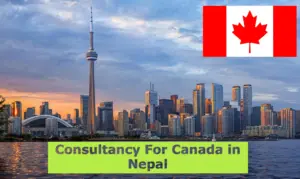Benefits of Studying in Canada: A Comprehensive Guide
Introduction: Benefits of Studying in Canada
Benefits of Studying in Canada: Studying in Canada offers a multitude of benefits that attract students from around the globe. Known for its high-quality education system, diverse culture, and welcoming environment, Canada provides an enriching experience for international students. Here’s an in-depth look at the numerous advantages of pursuing your studies in Canada.

High-Quality Education
One of the primary benefits of studying in Canada is the high standard of education. Canadian universities and colleges are renowned for their rigorous academic programs and excellent faculty. Institutions like the University of Toronto, McGill University, and the University of British Columbia consistently rank among the top universities globally. These institutions offer a wide range of programs that cater to various academic interests and career goals, ensuring that students receive a well-rounded education.
Also visit:-
Affordable Tuition Fees
Compared to other popular study destinations like the United States, the United Kingdom, and Australia, Canada offers relatively affordable tuition fees. Additionally, the cost of living in Canada is generally lower than in these countries, making it a more budget-friendly option for international students. Many Canadian universities also offer scholarships and financial aid to help reduce the financial burden on students.
Multicultural Environment
Canada is known for its multicultural society that embraces diversity. Studying in Canada gives students the opportunity to experience different cultures, traditions, and perspectives. This multicultural environment fosters inclusivity and helps students develop a global outlook. Interacting with peers from various backgrounds can enhance your cultural competence and interpersonal skills, which are valuable in today’s globalized world.
Work Opportunities
One of the significant benefits of studying in Canada is the opportunity to gain work experience while studying. International students are allowed to work part-time during the academic year and full-time during scheduled breaks without the need for a separate work permit. This enables students to support themselves financially and gain valuable work experience. Additionally, Canada offers post-graduation work permits (PGWP), allowing graduates to work in Canada for up to three years after completing their studies. This can be a stepping stone to permanent residency for those who wish to stay and build their careers in Canada.
Also visit:-
High Quality of Life
Canada consistently ranks high in quality of life indices, making it an attractive destination for international students. The country boasts a high standard of living, with excellent healthcare, low crime rates, and clean, safe cities. Canadian cities like Vancouver, Toronto, and Montreal are known for their vibrant culture, beautiful landscapes, and numerous recreational activities. This high quality of life ensures that students can enjoy a balanced and fulfilling experience during their time in Canada.
Innovative and Research-Oriented Education
Canada places a strong emphasis on research and innovation. Canadian universities are at the forefront of technological advancements and scientific research, providing students with ample opportunities to engage in cutting-edge research projects. Students benefit from state-of-the-art facilities and the chance to work alongside leading researchers in their field. This focus on research and innovation prepares students for successful careers in academia, industry, and beyond.
Safe and Peaceful Environment
Canada is known for its safe and peaceful environment, making it a reassuring choice for international students and their families. The country’s low crime rate and strong gun control laws contribute to its reputation as one of the safest countries in the world. This safe environment allows students to focus on their studies and enjoy their time in Canada without constant concern for their safety.
Pathway to Permanent Residency
Canada offers a clear pathway to permanent residency for international students. Programs like the Canadian Experience Class (CEC) and the Provincial Nominee Program (PNP) facilitate the transition from student status to permanent resident status. These programs recognize the value that international graduates bring to the Canadian economy and society. By studying in Canada, students can gain the necessary qualifications and work experience to apply for permanent residency, making Canada a long-term option for their future.
Supportive Learning Environment
Canadian universities and colleges are known for their supportive and inclusive learning environments. Small class sizes, accessible professors, and a range of student services ensure that students receive personalized attention and support. Institutions often provide academic advising, career counseling, mental health services, and extracurricular activities to help students thrive both academically and personally.

English and French Language Skills
Canada is a bilingual country with English and French as its official languages. Studying in Canada provides an excellent opportunity to improve language skills in either or both languages. Many institutions offer language courses and support for international students to help them achieve proficiency. Being bilingual or having strong language skills can significantly enhance your employability and open up additional career opportunities.
Conclusion
The benefits of studying in Canada are extensive, making it a top choice for international students seeking a high-quality education in a welcoming and diverse environment. From world-class educational institutions and affordable tuition fees to ample work opportunities and pathways to permanent residency, Canada offers a comprehensive and enriching experience for students from around the world. By choosing to study in Canada, you invest in a bright future filled with academic excellence, personal growth, and professional success.
Summary of above content on Benefits of Studying in Canada:-
- One of the main benefits of studying in Canada is access to high-quality education provided by world-renowned institutions.
- The benefits of studying in Canada include affordable tuition fees compared to other popular study destinations.
- Experiencing a multicultural environment is one of the key benefits of studying in Canada, as it enriches students’ cultural understanding and global perspective.
- Gaining work experience while studying is among the benefits of studying in Canada, with part-time work options available during the academic year.
- The post-graduation work permit is a significant benefit of studying in Canada, allowing graduates to work for up to three years after completing their studies.
- A high quality of life is one of the primary benefits of studying in Canada, with its excellent healthcare, clean cities, and low crime rates.
- Among the benefits of studying in Canada is the opportunity to engage in innovative research at state-of-the-art facilities.
- The safe and peaceful environment is a notable benefit of studying in Canada, providing students with a secure place to live and learn.
- One of the benefits of studying in Canada is the clear pathway to permanent residency through programs like the Canadian Experience Class.
- Supportive learning environments and personalized attention from faculty are benefits of studying in Canada, helping students succeed academically.
- The bilingual nature of the country is one of the benefits of studying in Canada, offering the chance to improve English and French language skills.
- Developing a global network of professional contacts is among the benefits of studying in Canada, enhancing career opportunities.
- The diverse range of programs available is one of the benefits of studying in Canada, catering to various academic interests and career goals.
- Participation in vibrant campus life and extracurricular activities is one of the social benefits of studying in Canada, fostering personal growth and community engagement.
- The inclusive and welcoming society is a significant benefit of studying in Canada, ensuring that international students feel at home and supported.
- The benefits of studying in Canada include access to top-tier education from renowned institutions like the University of Toronto and McGill University.
- One of the major benefits of studying in Canada is the opportunity to work part-time during studies and full-time during breaks, helping students gain valuable work experience.
- The multicultural environment and high quality of life are significant benefits of studying in Canada, providing a welcoming and enriching experience for international students.
FAQs on Benefits of Studying in Canada:-
- Q: What are the main benefits of studying in Canada? A: The main benefits of studying in Canada include high-quality education, affordable tuition fees, a multicultural environment, work opportunities, a high quality of life, innovative and research-oriented education, a safe and peaceful environment, and pathways to permanent residency.
- Q: How is the quality of education in Canada? A: Canada offers a high standard of education with globally recognized degrees. Canadian universities and colleges are known for their rigorous academic programs, excellent faculty, and state-of-the-art facilities.
- Q: Is studying in Canada affordable compared to other countries? A: Yes, studying in Canada is generally more affordable than in other popular study destinations like the United States, the United Kingdom, and Australia. Tuition fees and living costs in Canada are comparatively lower, and there are various scholarships and financial aid options available for international students.
- Q: Can international students work while studying in Canada? A: Yes, international students can work part-time during the academic year and full-time during scheduled breaks without needing a separate work permit. This allows students to support themselves financially and gain valuable work experience.
- Q: What are the post-graduation work opportunities in Canada? A: Canada offers post-graduation work permits (PGWP), allowing graduates to work in Canada for up to three years after completing their studies. This can help students gain work experience and transition to permanent residency.
- Q: Is Canada a safe place for international students? A: Yes, Canada is known for its safe and peaceful environment. The country has a low crime rate and strong gun control laws, making it one of the safest countries in the world for international students.
- Q: How does Canada support international students? A: Canadian universities and colleges offer a range of support services for international students, including academic advising, career counseling, mental health services, and extracurricular activities. These services help students adjust to their new environment and succeed academically and personally.
- Q: What are the language benefits of studying in Canada? A: Canada is a bilingual country with English and French as its official languages. Studying in Canada provides an excellent opportunity to improve language skills in either or both languages, which can enhance employability and open up additional career opportunities.
- Q: How diverse is the student population in Canada? A: Canada is known for its multicultural society and diverse student population. International students from around the world come to study in Canada, creating a rich and inclusive learning environment.
- Q: Can international students apply for permanent residency in Canada? A: Yes, international students can apply for permanent residency through programs like the Canadian Experience Class (CEC) and the Provincial Nominee Program (PNP). These programs recognize the value of international graduates and provide pathways to permanent residency.
- Q: Are Canadian degrees recognized internationally? A: Yes, Canadian degrees are highly respected and recognized globally. Graduates from Canadian institutions are well-regarded and often find successful employment in various countries around the world.
- Q: What research opportunities are available in Canada? A: Canada places a strong emphasis on research and innovation. Students have access to state-of-the-art facilities and can engage in cutting-edge research projects across various fields, often working alongside leading researchers.
- Q: How is the quality of life in Canada for international students? A: Canada offers a high quality of life with excellent healthcare, clean and safe cities, and vibrant cultural scenes. Cities like Vancouver, Toronto, and Montreal are known for their livability and numerous recreational activities.
- Q: What are the accommodation options for international students in Canada? A: International students in Canada can choose from various accommodation options, including on-campus housing, off-campus apartments, and homestays. Universities often provide support in finding suitable housing.
- Q: Are there scholarship opportunities for international students in Canada? A: Yes, many Canadian universities and external organizations offer scholarships, grants, and bursaries for international students based on academic merit, financial need, and specific fields of study.
- Q: How does studying in Canada enhance career prospects? A: Studying in Canada equips students with a high-quality education, practical work experience, and a global perspective, all of which enhance employability. The opportunity to work during and after studies also helps build a strong resume.
- Q: What is the climate like in Canada for international students? A: Canada has a diverse climate, with regions experiencing cold winters and warm summers. While the climate varies across the country, all cities and universities are well-equipped to handle seasonal changes.
- Q: How accessible are Canadian universities for international students? A: Canadian universities are very accessible to international students, with streamlined application processes, support services, and dedicated international student offices to assist with visas, housing, and orientation.
- Q: What extracurricular activities are available for students in Canada? A: Canadian universities offer a wide range of extracurricular activities, including sports, cultural clubs, volunteer opportunities, and student organizations, providing students with a well-rounded educational experience.
- Q: What are the cultural experiences like for international students in Canada? A: Canada’s multicultural society offers rich cultural experiences, from festivals and events to diverse culinary scenes. International students can immerse themselves in various cultural traditions and activities, enhancing their overall experience.
- Q: What are the primary benefits of studying in Canada? A: The primary benefits of studying in Canada include access to high-quality education from world-renowned institutions, relatively affordable tuition fees, a multicultural and inclusive environment, opportunities for part-time work during studies, and post-graduation work permits that allow graduates to gain work experience in Canada. Additionally, Canada’s high quality of life, safety, and pathways to permanent residency enhance the overall student experience.
- Q: How does the cost of studying in Canada compare to other countries? A: The cost of studying in Canada is generally more affordable than in other popular study destinations like the United States, the United Kingdom, and Australia. Tuition fees in Canada are comparatively lower, and the cost of living is also generally less expensive. Many Canadian institutions offer scholarships and financial aid to further reduce the financial burden on international students.
- Q: Can international students work while studying in Canada? A: Yes, international students in Canada can work part-time during the academic year and full-time during scheduled breaks without needing a separate work permit. This allows students to support themselves financially and gain valuable work experience related to their field of study.
- Q: What opportunities are available for international students after graduation in Canada? A: After graduation, international students in Canada can apply for a post-graduation work permit (PGWP), which allows them to work in Canada for up to three years, depending on the length of their study program. This work experience can be beneficial for those seeking to transition to permanent residency through programs such as the Canadian Experience Class or the Provincial Nominee Program.
- Q: How does the multicultural environment in Canada benefit international students? A: The multicultural environment in Canada benefits international students by providing a rich and inclusive experience. Students have the opportunity to interact with peers from diverse backgrounds, which enhances their cultural competence and global perspective. This exposure helps students build a broad network of professional and personal connections and prepares them for success in a globalized world.
Contact ETG office:-
https://educationtreeglobal.com/
enquiry@educationtreeglobal.com
01-5911945 & 01-5911944
Kamalpokhari 01, Kathmandu










